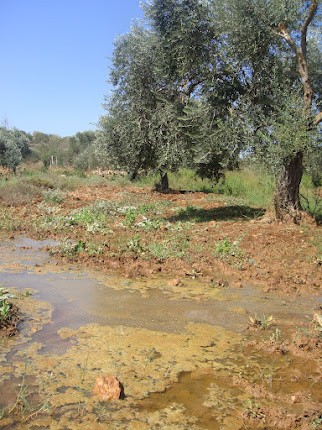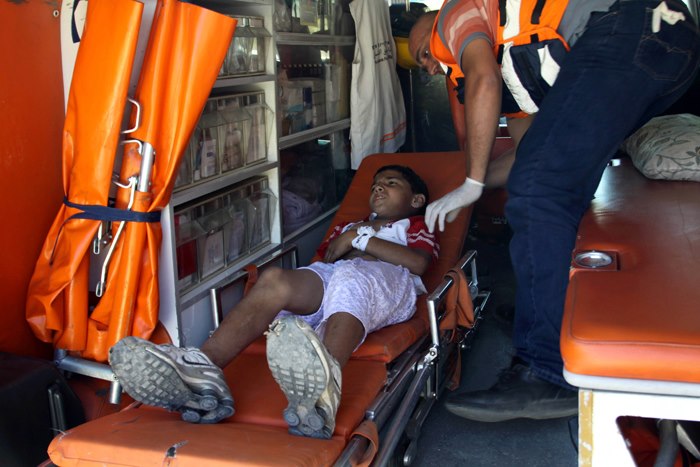Category: Press Releases
-
Village of Yatma suffers after Israel annexes spring
By Ellie September 14, 2012 | International Solidarity Movement, West Bank In 2008, the Israeli army annexed a spring that belonged to the Palestinian village of Yatma, providing fresh water to the village for free. This theft has severely limited the village’s access to water, as the majority of the output of the spring is…
-
Families of Palestinian detainees call for urgent actions to support hunger strikers
September 11, 2012 | Ministry of Detainees’ and Ex-detainees’ Affairs For immediate release For more information: Doaa Abu Amer 0792599765048 doa.ah1985@gmail.com GAZA, PALESTINE, September 11 – The families of Palestinians detained by Israel called for a week of urgent actions to support a mass hunger strike on 13 September, as well as ongoing hunger…
-
Palestinian family members attacked, then arrested in khan Al Luban
By Marshall Pinkerton 29 August | International Solidarity Movement On the morning of August 28, around 30 settlers armed with guns and sticks descended upon a Palestinian home located in Khan al-Liban, and attacked the Daraghmah family. The mother, Taghrid, and the two youngest sons, Mu’min, 13, and Nour al-Deen, 9, were injured during the…


